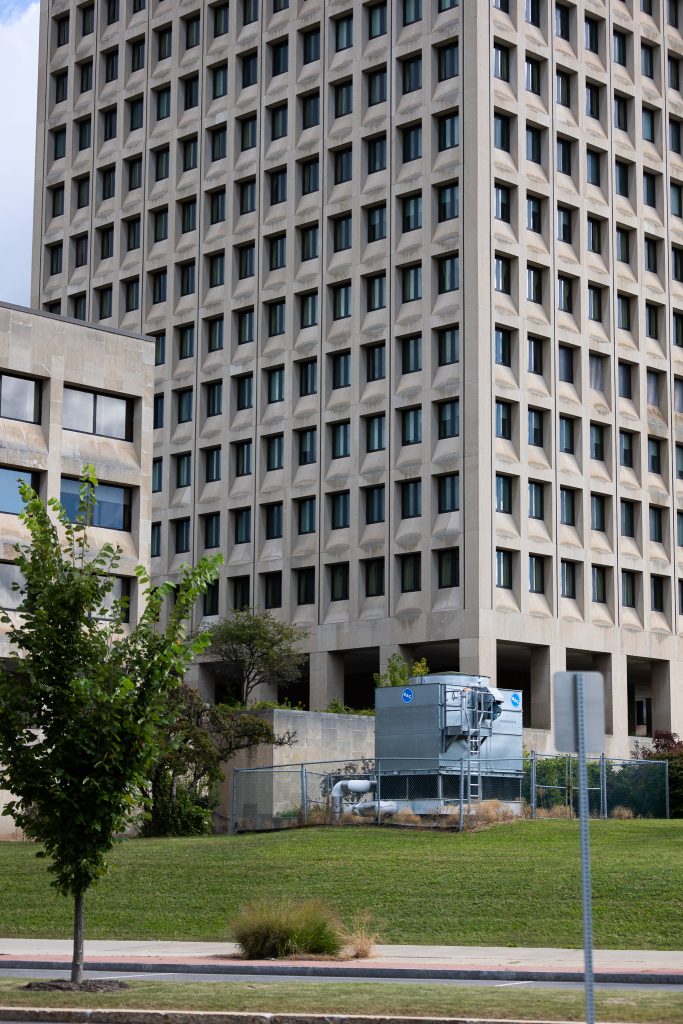Hate crimes in New York state have risen 69 percent over the last five years, according to a report released by the office of Thomas DiNapoli, the state comptroller.
The last year included in the report’s analysis, 2023, saw 1,089 hate crimes reported — 669 in New York City and 420 in the rest of the state. Outside of New York City, hate crimes have risen 87.5 percent since 2019, and hate crimes in both regions have steadily increased since 2020, a year that may have underreported incidents because of the COVID-19 pandemic.
Religion-based hate crimes were the most commonly reported in 2023, accounting for about half of all reports. Most of these — about 88 percent — were against Jewish individuals, with substantial increases in incidents against Muslim individuals since 2018. Hate crimes based on race, ethnicity and national origin made up one-third of all reported cases, while sexual orientation or gender identity accounted for 17 percent.
“As a diverse hub of cultures, beliefs and identities, New York’s strength has always been in the creation of community bonds that transcend these characteristics and unite us as New Yorkers,” the report’s conclusion read. “The fight against hate demands that we all participate in fostering communication with, understanding of and acceptance of our neighbors.”
Acknowledging larger reasons for the potential underreporting of hate crimes, the report cited fear of retaliation, language barriers and distrust of law enforcement.
While the 2023 Division of Criminal Services hate crimes report — which specifies incidents and arrests by county — has not been published, Broome County saw an increase in hate crimes in an older report, with eight reported incidents in 2022 compared to three in 2021.
At the beginning of the semester, two Binghamton University administrators — Karen Jones, the vice president for diversity, equity and inclusion, and Donald Hall, the provost and executive vice president for academic affairs — published a core principles reminder that stressed the importance of diversity and civility and listed resources for students who have experienced bias or discrimination, like the University Counseling Center and the Consultation, Advocacy, Referral and Education team.
“We have a community that is strong because of its diverse perspectives and experiences,” the letter read. “We are at our best when we foster a respectful, inclusive, equitable and welcoming environment and when all our voices are fully supported.”
Jones, in a statement to Pipe Dream, mentioned the bias incident report webpage, where students can create confidential reports if they have witnessed or experienced hate, bias, harassment or discrimination. After submitting a report, students will receive a response from the University’s affirmative action officer within 24 to 48 hours.
Students can also access off-campus resources, like the Crime Victims Assistance Center, which provides free and confidential services for crime victims, including counseling, medical and compensation advocacy, and case management. While primarily serving victims of interpersonal violence and sexual assault, the organization plans to collaborate with other local groups to serve vulnerable communities, including the Southern Tier AIDS Program, Identity LGBTQ Youth Center and the Jewish Community Center.
“In addressing hate crimes, all these services are available to victims, and they are provided by culturally competent staff who are trained in intersectionality, marginalization, and have a deep understanding of victim advocacy,” CVAC wrote. “We as an organization are constantly working to better meet the needs of our community, and support anyone hurt by the various crimes that occur in the county. Our staff are in the community, speaking directly with victims and community members, determining what the new needs of the community are.”
The organization has a campus advocate at the Violence, Abuse and Rape Crisis Center in Old Johnson Hall to provide on- and off-campus services to students struggling with crime, mainly sexual and interpersonal violence. They also offer private or confidential services for victims of sexual violence and other crimes, like assisting with incident reports, trauma recovery and connections with the Office of Student Conduct and Residential Life.
DiNapoli’s report spotlighted state initiatives to address the rise in hate crimes. The 2025 state budget included legislation to expand the definition of hate crimes and increase funding for nonprofit organizations to support communities most at risk. The state is also working to develop a Hate and Bias Prevention Unit in the Division of Human Rights and New York City’s Office for the Prevention of Hate Crimes, which would create prevention strategies and education initiatives to promote diversity and prevent intolerance.
“By forging a united front against prejudice and intolerance, New York State can create a safer environment where all individuals can thrive without fear of discrimination or violence based on their identities,” the report concluded.



